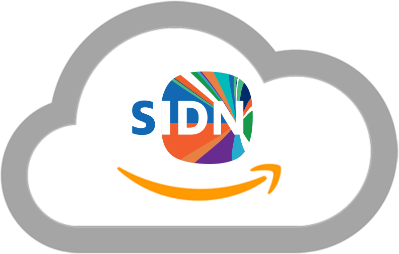Unrest surrounding the migration of .nl registration platform to AWS

The recent announcement by SIDN, the registry of .nl domain names, to migrate their registration platform to Amazon Web Services (AWS), has caused significant unrest within the Dutch internet community. This decision marks a significant shift from using in-house hardware to engaging a US cloud provider for essential digital infrastructure. This has not only led to debate among technology professionals and users but has even reached the political arena, with parliamentary questions about the switch.
The Core of the Concern
The concerns about this move primarily focus on the implications of hosting critical Dutch infrastructure with an American entity. There is fear that this could undermine the digital sovereignty of the Netherlands and increase dependence on foreign technology companies. These concerns are amplified by the broader discussion on European autonomy in digital services, where dependence on non-European cloud providers is seen as a potential risk. The Dutch providers of cloud services, whose voices we heard on this matter, all indicate that they were not consulted by SIDN and were not given the opportunity to propose an alternative.
A notable voice in the protest against this transition is Bert Hubert, former driving force behind PowerDNS, a widely used DNS software. Hubert advocates for the importance of maintaining European sovereignty over essential services and believes that it is precisely organizations like SIDN that should play a leading role in this. However, in a recent publication, he also highlighted the challenges of competing with giants like AWS, indicating how difficult (impossible) it is to compete with them. He compares building one’s own cloud service to replicating the entire IKEA concept from scratch, where there’s a good chance that IKEA will still have the best version of IKEA afterward.
The Dilemma of Innovation versus Sovereignty
The issue sheds light on the broader dilemma of balancing the utilization of innovative technologies and maintaining control over national digital infrastructure. AWS offers a wide range of solutions for various IT problems, making it an attractive option for organizations looking for reliability and scalability. However, choosing such a provider raises questions about the desirability of dependence and the potential for vendor lock-in. Many of the solutions that AWS offers are not always necessary, or could be added to a cloud solution that is open and does not have vendor lock-in with some innovation.
Comparison with Belgium
Interestingly, the comparison with Belgium, where DNS Belgium, the manager of .be domain names, announced in 2017 their migration of their registration platform to AWS without significant uproar. This either shows the cultural differences between the two countries or a changing zeitgeist, where digital sovereignty and data autonomy are more in the spotlight.